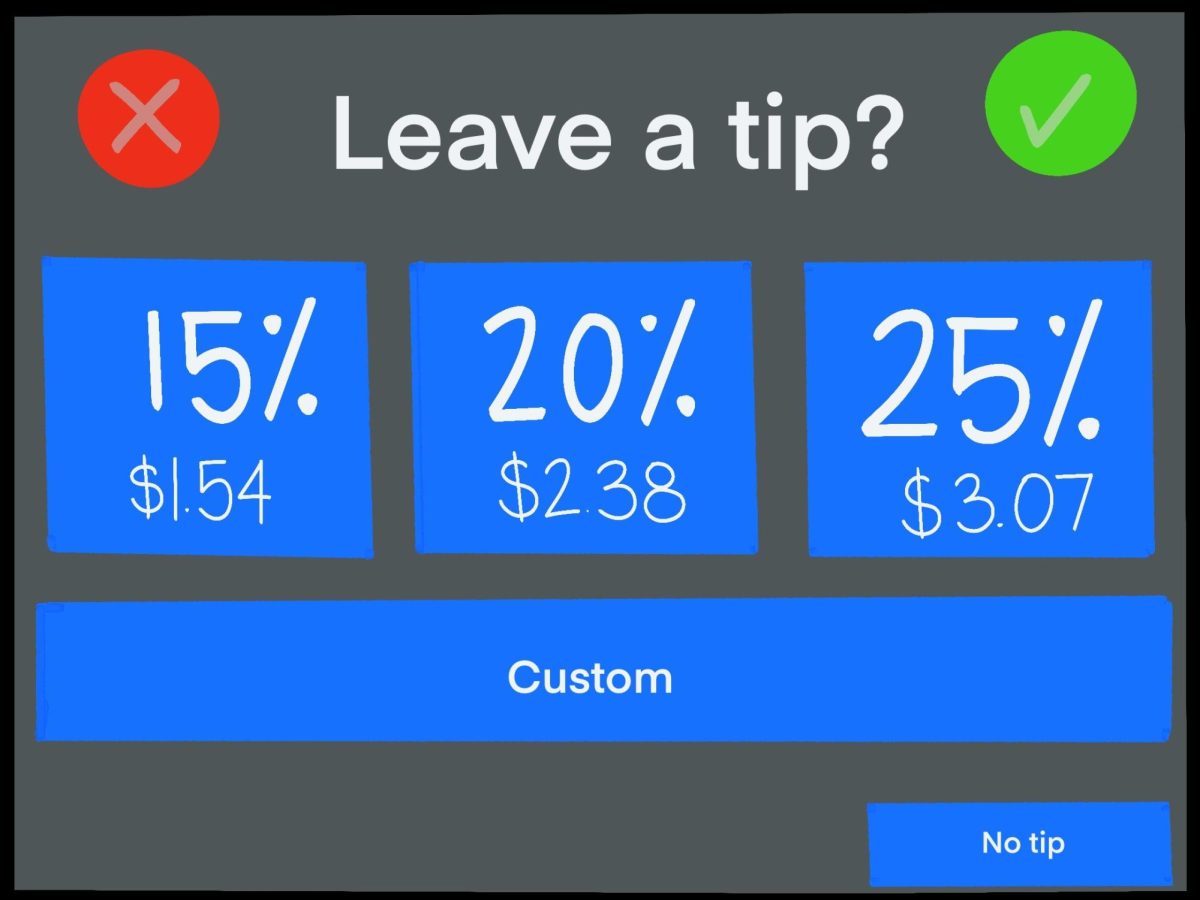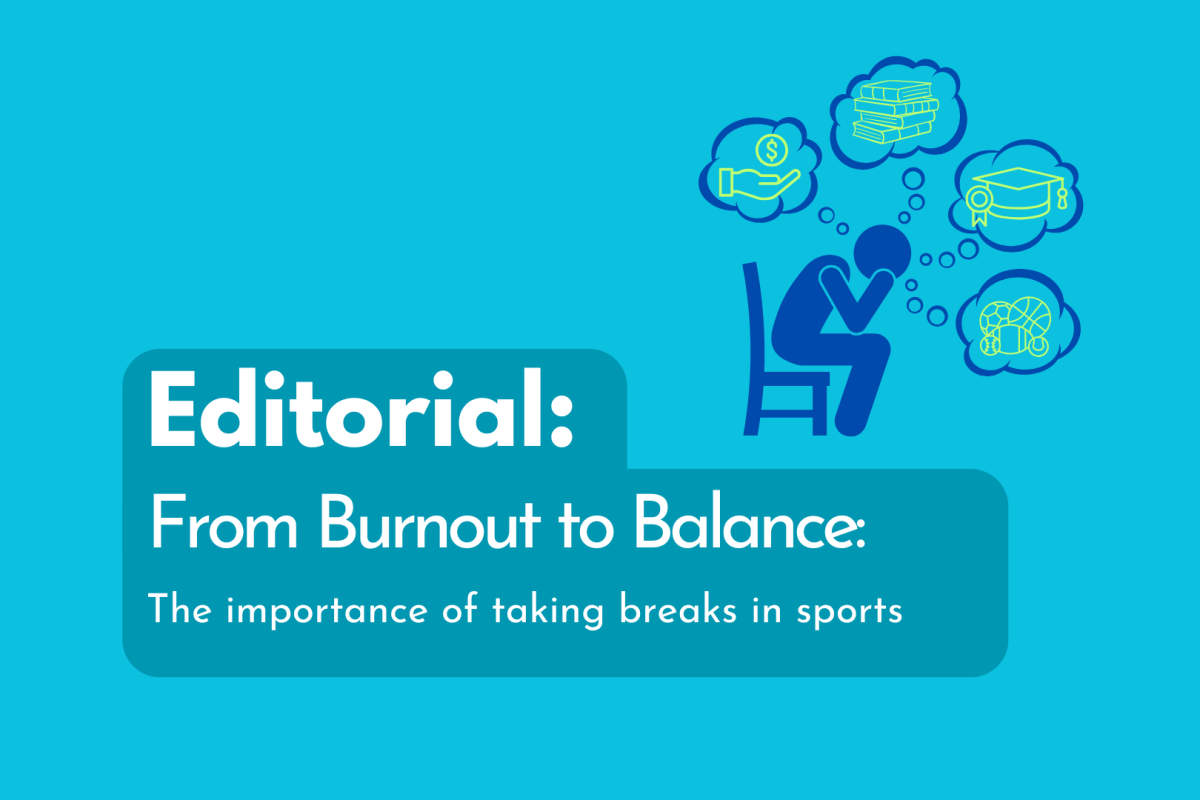The routine of ordering at your local coffee shop: you order a $6 coffee, and the barista flips an iPad around towards you with the scariest part – the tipping screen. Which option should you choose?
With the typical payment technology, all sorts of options for tipping are given to you, often ranging from 15-40%, with a smaller, off to the side, “no tip” button. The barista gives you a judgemental death stare before you make your selection.
While tipping was previously reserved for only sit-down restaurants, it has slowly evolved over time, becoming an unfortunate and expensive part of our everyday lives. Over time, customers have been asked for tips nearly everywhere we go, making each of our purchases just that much more stressful.
The problem lies not with the employee wanting the tip, but instead with their employer, who puts the responsibility of paying employees livable wages onto the consumer. Inflation is at an all-time high in the United States, however, wages aren’t proportional to the higher costs of living. Instead of making changes in a business’s structure to raise employee wages, consumers are instead being asked to tip more and more to compensate for inflation.
Businesses failing to provide livable wages have huge ripple effects. Employees who aren’t making enough money are now pushed to tip when purchasing items elsewhere, causing everything to become more expensive. Around the world, tipping isn’t as necessary as in the United States, as this responsibility falls on the employer and not the consumer, making prices much more transparent.
Tipping at a sit down restaurant is widely accepted and expected. This is a service where a large part of the customer’s experience is dependent upon the quality of the server. However, the evolution of tipping has become almost disrespectful to consumers. As showcased in Wall Street Journal, even customers using a self-checkout machine at an airport are asked to tip. As consumers, we are already forced to use self-checkouts in order to cut labor costs for corporations, but are then asked to tip a computer for an experience where no service was provided.
According to a Pew Research Center study from November 2023, 92% of American adults surveyed believe that servers at a sit-down restaurant should be tipped, while only 25% believe that they should tip in a coffee shop. Despite this data, no matter where we go as consumers, we are consistently asked to tip; feeling the pressure from the other side of the counter making tipping feel like a requirement.
I would love to ensure employees are able to go home with a livable wage, and often feel obligated to tip simply out of guilt. However, it is extremely unsustainable to maintain this; tipping at the vast majority of businesses should become obsolete, and we should instead focus on making sure companies are responsible for their employees’ wages.











